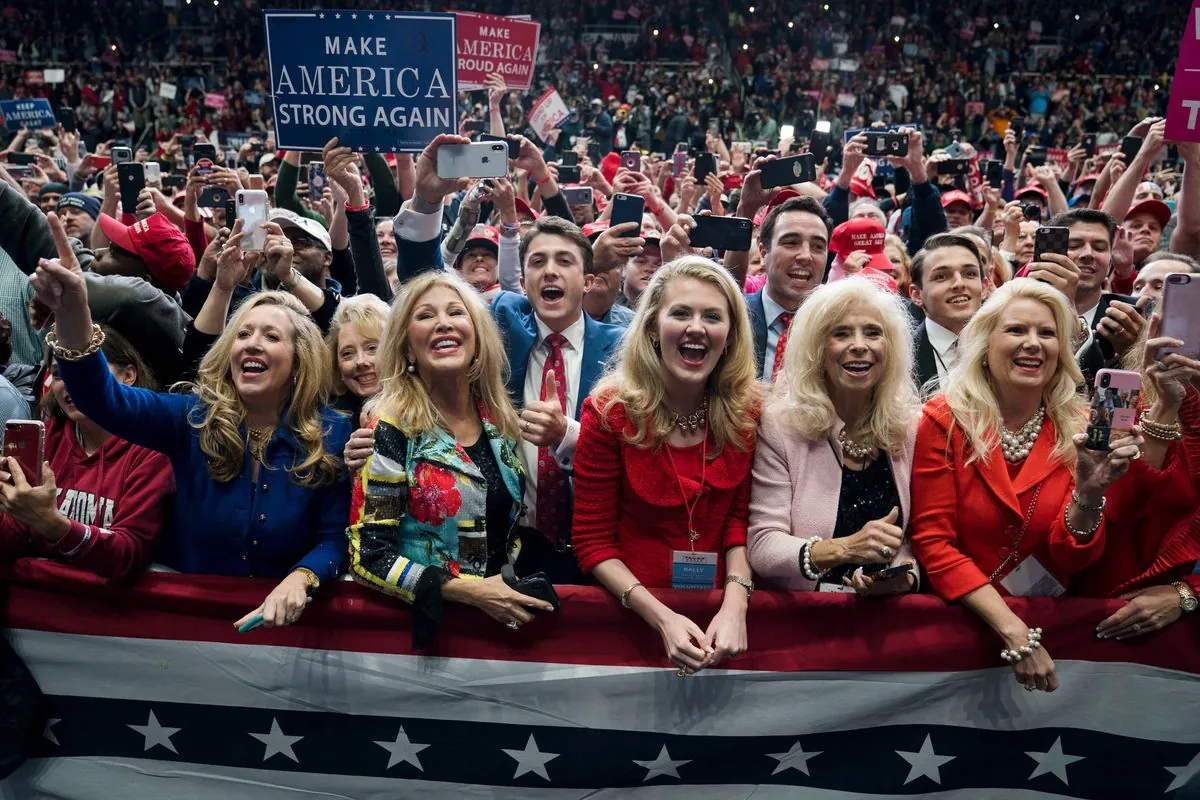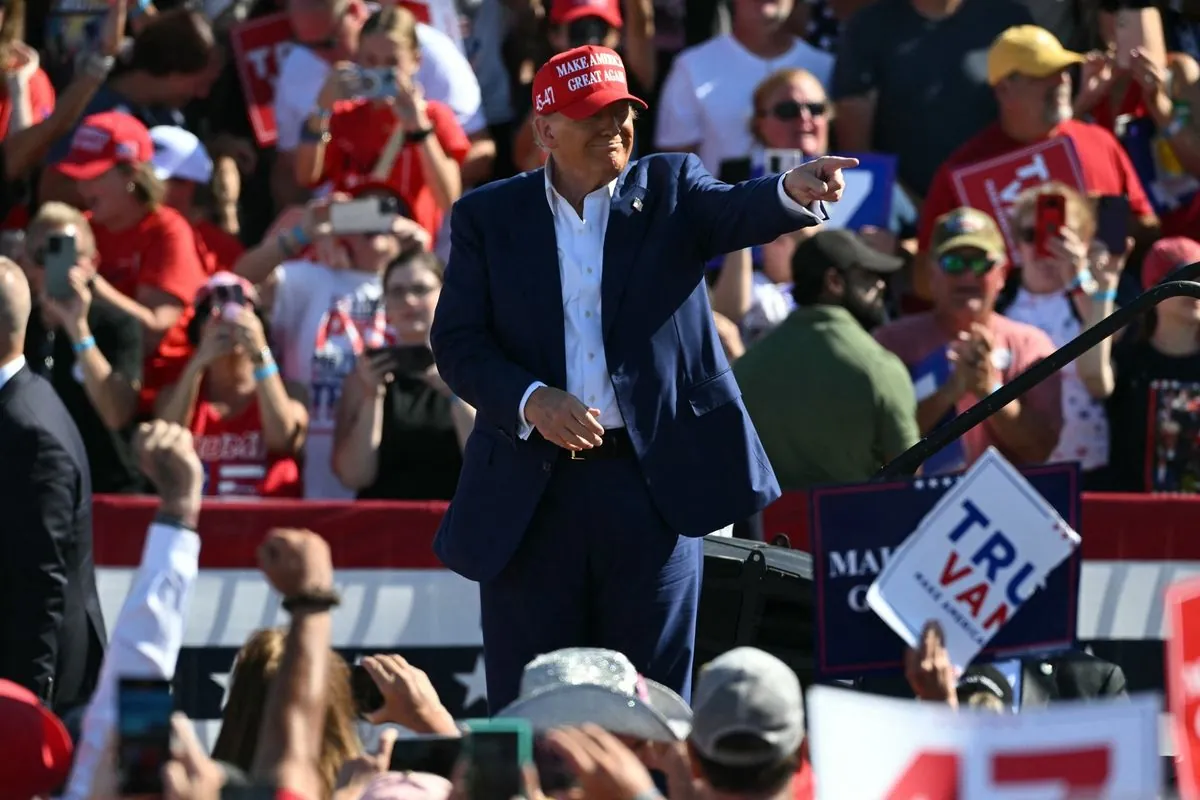Trump's New "Protector" Strategy Aims to Win Women Voters
Former President Trump adopts a "protector" stance to appeal to women voters, sparking mixed reactions. This strategy addresses key issues like inflation and immigration, aiming to narrow his polling deficit among women.

In a strategic shift ahead of the upcoming presidential election, Donald Trump has adopted a new approach to appeal to women voters. The former president, who served from 2017 to 2021, is now portraying himself as a "protector" of women, focusing on issues such as inflation, immigration, and crime.
This campaign tactic comes as Trump seeks to narrow the considerable deficit he faces among women voters, who have consistently accounted for more than half of the electorate in recent elections. The gender gap in political attitudes and voting choices has been a significant factor in U.S. elections, with women often leaning more towards Democratic candidates.
Trump's new messaging strategy has elicited mixed reactions from voters. Some conservative-leaning women find his approach reassuring, particularly those concerned about issues like immigration and public safety. Rebecca Eisert, a 72-year-old unaffiliated voter from North Carolina, expressed her worries about "illegal aliens" and "drunk drivers," reflecting the concerns of some voters who resonate with Trump's message.
However, other women view Trump's "protector" stance as paternalistic or insulting. Darlene Gutman, a 55-year-old former Trump supporter, stated, "I don't want to see a bunch of White guys telling me what I can and can't do." This sentiment highlights the challenge Trump faces in appealing to women voters who prioritize issues such as abortion rights.
The abortion debate remains a contentious issue for the Republican Party. The overturning of Roe v. Wade in June 2022, which Trump has taken credit for, has led to strict abortion bans in some states. This development has energized many women voters who support abortion rights and view Trump's role in the Supreme Court's decision negatively.
Trump's campaign spokesperson, Karoline Leavitt, defended the strategy, stating that Trump is "responding directly to the fears of women that are felt in this country." The campaign is leveraging Trump's perceived political advantage on issues such as immigration and the economy to appeal to women voters.

However, Trump's history with women continues to influence voter opinions. His past sexist comments, allegations of sexual misconduct, and the recent civil case where he was held liable for sexual abuse have contributed to his challenges with women voters. In the 2020 election, exit polls showed that Trump lost the women's vote to President Biden by 15 points.
The effectiveness of Trump's new strategy remains to be seen. Some supporters, like Tim Tobin, who attended a rally with his wife, noted the change in Trump's messaging but expressed uncertainty about its impact. "It sounds okay, I know he's trying to win them over but I don't know," Tobin said, "it might be too schmoozy."
As the election approaches, the Republican Party faces internal divisions on how to appeal to women voters. The situation in North Carolina, a key battleground state, illustrates these challenges. Republicans fear that controversial statements by Lt. Gov. Mark Robinson could further alienate suburban women and negatively impact the GOP ticket.
"It's an insane message. Women, first of all, can take care of themselves. They need to be protected from men like him."
With less than six weeks until Election Day, the impact of Trump's new strategy on women voters remains uncertain. As campaigns intensify their efforts in swing states and suburban areas, the effectiveness of this "protector" message will be closely watched by political analysts and voters alike.


































